President-elect Donald Trump is known as the Tariff Man – but what will his policies mean for international trade and UK business?
In the days since Donald Trump’s unprecedented victory, making him the first convicted felon to be elected president of the United States, the world has scrambled to understand what it will mean for both business and politics.
If we are to see Trump’s proposed policies materialise, we can expect much of his presidency to mirror his first term, with tax cuts, trade tariffs and deregulation all back on the agenda.
His campaign led almost as much on trade policy as it did on issues of domestic policy – crucially, he pledged to increase tariffs on goods imported from around the world by as much as 20%, rising to 60% on goods from China, as part of his stance to “protect” US industry.
It is widely agreed that this could trigger a trade war with China and the EU, with the UK also bound to be dragged in despite its “special relationship” with America. But how likely is that to happen, and what will it all mean for global trade and the UK food industry?
Trump tariffs and impact on US-UK trade
Shanker Singham, one of the world’s leading international trade experts and a former advisor to both the UK Secretary of State for International Trade and to the United States Trade Representative, warns Trump “means what he says” when he suggests the imposition of tariffs on all countries that do not have free trade agreements with the US, but that “his major concern is rightly the impact of the web of China market distortions on US firms”.
Singham notes that while Trump “will certainly seek to deploy tariffs”, he still needs Congress to approve them – and “even if Republicans control both House and Senate, it will be close and there are a number of factions in the House in particular”, so it might not be as straightforward as that.
Nevertheless, the world “would be wise to take him seriously but not literally, as opposed to what most of the commentariat have done, which is to take him literally but not seriously”, he says.
But if Trump gets his way, the UK consumer goods sector is bound to take a hit.
The US is already Britain’s third largest single market for food and drink exports, topped only by Ireland and France. In the first half of the year, the UK exported £1.1bn of food and drink goods to America, up 0.4% on the same period last year. Meanwhile, the UK imported significantly less from the US, with H1 imports at £655m.
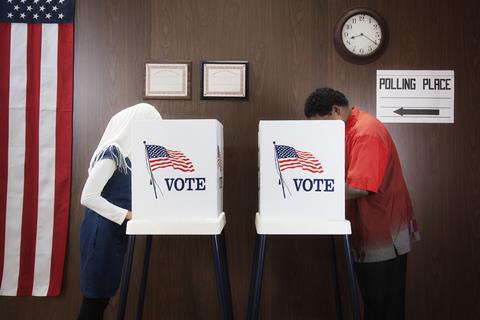
This election also came at a time of rising demand for British food and drink brands among US consumers, according to new research by Vypr – so popular British exports like scotch, salmon and cheese could all be under threat, says Ian Wright, co-chair of the UK Food and Drink Export Council.
Some sectors would experience sharper export declines due to reduced US demand, as per modelling by the Centre for Inclusive Trade Policy (CITP) – with fishing set for a particularly painful drop of 21.5%.
Another sector that is highly exposed to tariffs is alcohol. The likes of Diageo and Campari, which derive a good share of their sales from the US markets, may see export tariffs on spirits rise as a result. Imported beers are also likely to take a hit, Bernstein analysts note, with major importer Constellation Brands considered “most at risk” from the proposed tariffs.
Meanwhile, domestic whiskey makers like Brown-Forman and Jack Daniel’s are likely beneficiaries of any protectionist measures put in place by Trump. But “it’s difficult to imagine” the UK wouldn’t counteract, Wright argues – potentially pushing up prices of those US brands in Britain too.
Not only will food and drink prices increase from such a conflict, but so will interest rates as inflation spikes, Wright warns. Plus, big American companies with major presence in the EU, the UK and Asia, as well as global multinationals with a big presence in the US, “may have to make a choice: in which sphere they wish to continue to be highly active in order to preserve their profitability”.
Read more:
-
What Donald Trump’s election win means for global trade
-
How a Trump or Harris victory in the US election will hit UK exports
In the US, Trump has suggested plans to stop legislation that would ban price gouging by large food businesses, instead focusing on economic policies that would bring food prices down.
But food companies should also be wary of Trump’s closeness to billionaire Elon Musk, who is comfortable strongarming fmcg giants, earlier this year suing the likes of Unilever and Mars for allegedly conspiring to pull advertising from the platform.
Unilever capitulated last month and “reached an agreement” with X, and got dropped from the lawsuit. Musk, one of the world’s richest men, is emerging as a highly influential player in Trump’s inner circle.
Devastating ripple effects
However, it goes without saying that the ripple effects of Trump’s win extend far beyond a specific sector.
Because tariffs “tend to work in two ways”, as Shore Capital analyst Clive Black explains, it begs the questions of “what response may China impose on US exports if high tariffs on its goods are applied, and how does this work through into wider trade flows and so the global economy?”
“It is a major potential headache for global economic trade and growth,” he says.
When significant portions of global supply chains shift, that supply will need to be directed elsewhere, affecting trade routes and commodity prices. If the aftermath of last week’s election is anything to go by, the global food & farming industry is headed for major impact linked to Trump’s protectionist policies.
For example, Chicago’s soya bean futures fell by almost 2% – a flashback to the Washington-Beijing tariff feud during Trump’s first term – as US farmers count China as a crucial market. Meanwhile, wheat and corn prices also dropped.
The global shipping industry is also notably worried that a new trade war between the US and China could lead to skyrocketing container prices – the same way shipping container rates increased by 70% during Trump’s previous term, according to freight intelligence platform Xeneta.
The Red Sea conflict has already resulted in shipping delays and fourfold increases in prices in some cases this year, and traders fear fresh hikes will trickle down to consumers.

Marco Forgione, director general at the Chartered Institute of Export & International Trade, also points to other knock-on effects, like the US potentially pulling out of the World Trade Organization (WTO), which enforces principles of trusted trade. He notes Trump’s unwillingness to do business with nations seeking to move away from using the dollar as the reserve currency, which could affect its value and currency exchanges.
The value of the dollar is a concern for importers and exporters to and from the UK too, says Black.
“It is fair to say that a period of potentially greater instability in currency markets may be more likely to ensue for a while, and the value of the dollar will be a key outcome of the new president’s policy programme for British shoppers in terms of prices.”
It is worth noting that a trade war is not entirely guaranteed. Trump’s proposed tariffs may simply be blunt instruments in wider geopolitical negotiations, especially with China.
But if they materialise, the effects on economies around the world will be devastating – the IMF has warned a full-blown trade war can wipe out the equivalent of the French and German economies combined from global GDP.
In the UK, economic growth is likely to be halved if Trump goes on to impose the controversial new tariffs he has threatened, according to the National Institute of Economic and Social Research (NIESR). His protectionist measures would result in weaker activity, rising inflation, and higher interest rates in Britain – lowering UK growth by 0.7 percentage points and 0.5 percentage points in the first two years, the thinktank warns.
Investment banking company Goldman Sachs also downgraded its forecast for the UK’s economic growth next year, from 1.6 to 1.4% following the election results. And in the EU, officials are now anticipating a reduction in exports to the US to the tune of €150bn (£125bn).
These numbers are bound to keep chancellor Rachel Reeves awake at night, but so far she’s had a cautious response to Trump’s win. When asked about the ramifications the Republican candidate’s policies will have on her plans for growth by the Commons Treasury Committee, she said it was “too early” to make substantial changes to forecasts and that Britain’s trading relationship with the US was “absolutely crucial”.
What about a US trade deal?
Some of the damages of Trump’s protectionist stance on UK-US trade could be reversed by the Labour government finally landing a free trade agreement with the US – widely considered the golden egg of the Tories’ post-Brexit trade strategy but unachieved by Conservative prime ministers of recent years. This has largely been due to food safety concerns around US-produced hormone beef and chlorinated chicken, which no UK leader has wanted to compromise on.
Nevertheless, Chancellor Reeves was adamant the UK government would “continue to make the case for free trade” with the new administration, and that it would “prepare for different eventualities”.
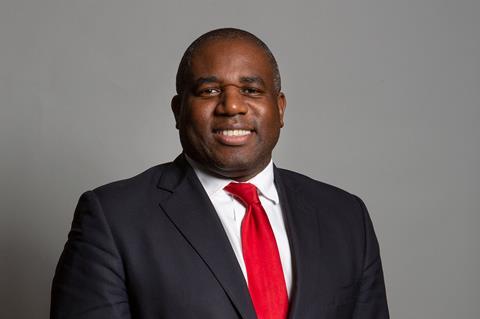
Some progress has already been achieved throughout Biden’s term. Eight bilateral agreements have been signed between the UK government and US states, including Republican state Florida. Foreign secretary David Lammy had been seeking ‘carve-outs’ for subsidies under Biden’s US Inflation Reduction Act, and also met with representatives from the Trump campaign earlier this year.
The former president has in the past suggested that UK-US trade “could be four to five times higher” than it is now, but he has not committed to an outright free trade agreement.
However, with only two months to go until the inauguration, experts argue it’s crunch time for ministers to exert any influence on Trump and his allies. “There is a short time for the UK to deploy its political influence, and turbo boost commercial diplomacy uniting business leaders and our exceptional diplomatic team to actively engage with the Trump team,” Forgione says.
Read more:
-
How the UK can unleash economic growth through improved trade without losing its regulatory powers
-
New Labour government losing goodwill gloss already
The UK government “would be well advised to make the case now as to why it merits an FTA with the US in order to avoid these tariffs”, argues Shanker Singham. “The more targeted and forensic we can make this the better, but we cannot offer nothing.”
He also warns that, “given the amount of Chinese products in UK supply chains, we will also need to proactively go to Trump with some proposals of our own as to how this China problem can be addressed”.
“At the end of the day, Trump is a deal maker,” he notes, and a deal with the UK is “eminently possible”.
“But we will have to ask for it, and the list of countries lining up will be long. Trump likes the UK, and values its geopolitical and geoeconomic partnership, unlike the previous administration, who saw it as a smaller and less functional version of the EU. We should take advantage of this.”
Lastly, the US election served as a reminder of how much food inflation and gas prices matter to the electorate. Trump’s closest political ally in the UK is Nigel Farage, who will certainly be taking notes from the president-elect’s campaign and how the inflation-related rhetoric worked with voters.
As people and businesses reel from Reeves’ brutal budget, the Labour government would be advised to do the same.







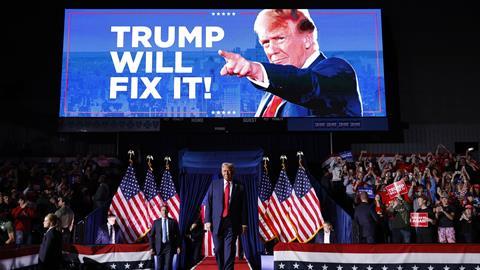
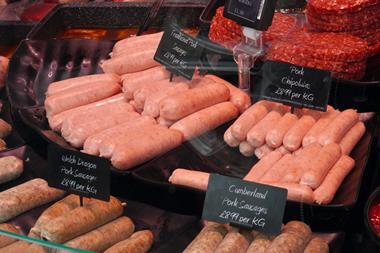
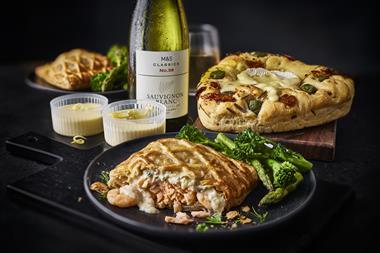










No comments yet